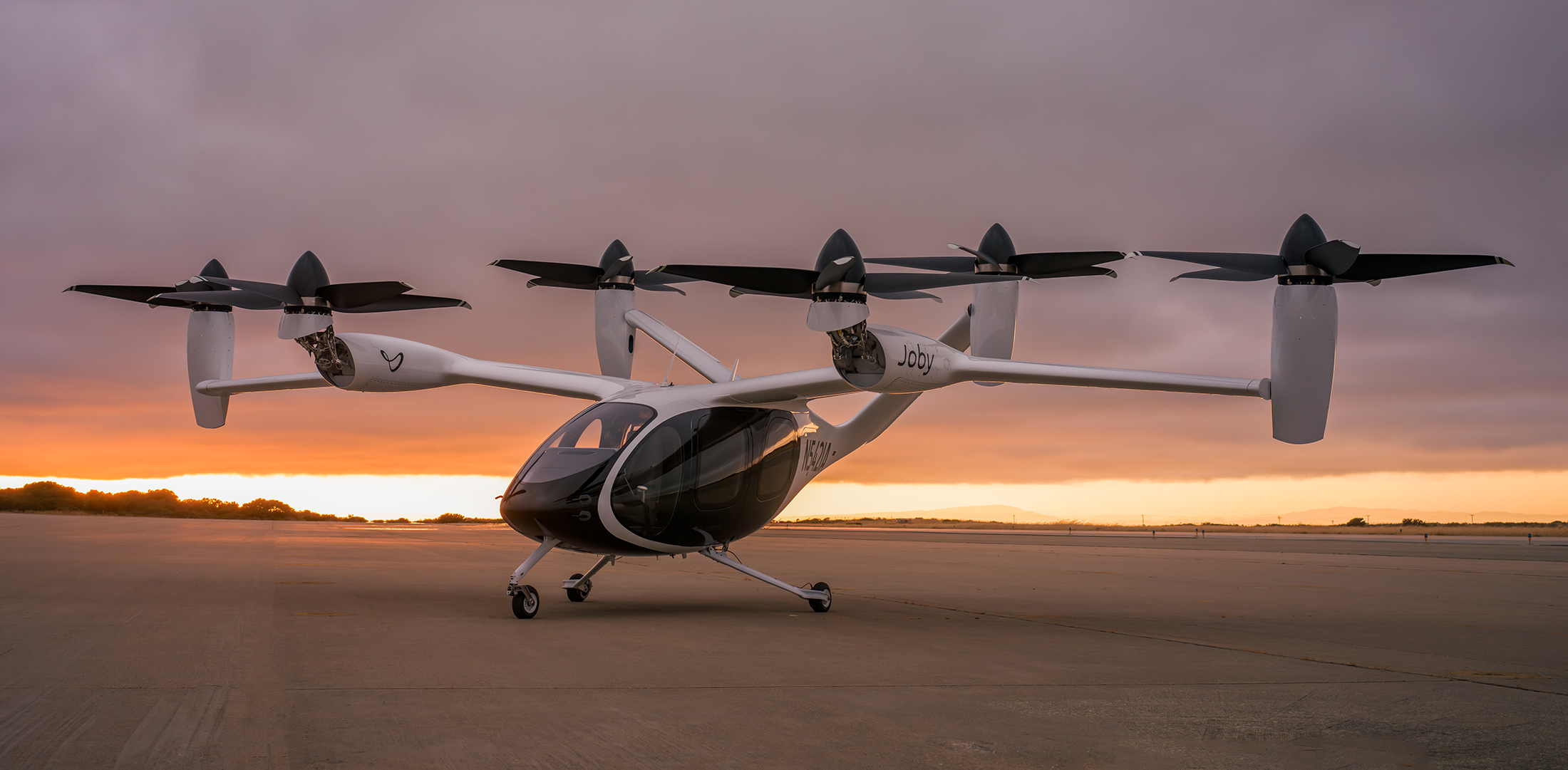Click Here to View This Page on Production Frontend
Click Here to Export Node Content
Click Here to View Printer-Friendly Version (Raw Backend)
Note: front-end display has links to styled print versions.
Content Node ID: 420074
Joby Aviation says it has finished submitting all the certification plans for its eVTOL aircraft to the FAA, marking a significant milestone in its path to launching a commercial air taxi service in the U.S. in 2025. Last week, Joby rolled out the first production prototype of the piloted, four-passenger aircraft at its flight testing facility in Marina, California, where the company has built a pilot production line together with its partner, Toyota.
With the submission of all its certification plans, Joby is close to completing the third of five stages of the FAA type certification process. In those certification plans, Joby has specified exactly what sort of testing, analyses, and design reports the company intends to complete to demonstrate its compliance with FAA safety regulations.
According to Joby, the stage-three submission includes about a dozen area-specific certification plans covering all the hardware and software that make up the aircraft’s various subsystems, such as the flight controls and the distributed electric propulsion system. It also includes detailed plans pertaining to cybersecurity and systems safety, according to the company.
Joby completed the second stage of certification in February when the FAA accepted its means of compliance, a document that spells out how the company plans to comply with the safety rules that were defined in its certification basis. The FAA and Joby agreed on a certification basis for Joby’s eVTOL aircraft in 2020, making the company the first eVTOL developer to reach this regulatory milestone. The G-1 certification basis sets the specific airworthiness criteria and environmental standards required for FAA type certification.
“Joby continues to lead the way on certifying eVTOL aircraft with the FAA, and today’s news is another step towards launching commercial service in 2025,” said Didier Papadopoulos, Joby’s head of aircraft OEM (original equipment manufacturing). “We’re grateful for the FAA’s continued commitment to safely introducing next-generation aircraft into service.”
When Joby rolled out the first production-representative version of its aircraft in Marina last week, the company also announced that it had received a special airworthiness certificate from the FAA, giving it the green light to begin flight testing. Joby has already logged more than 30,000 miles in flight tests with its earlier pre-production prototypes.
Joby plans to deliver this initial production prototype, or “company-conforming aircraft,” to Edwards Air Force Base in Southern California in early 2024 as part of its Agility Prime contract with the U.S. Air Force. This will be the first of up to nine aircraft that Joby will deliver to the USAF under that contract, which is worth up to $131 million, and it will mark the first time that any eVTOL aircraft is delivered to a paying customer. The company has been generating revenue through its work on the Agility Prime program since 2021.
According to Joby, the company is on track to achieve FAA type certification in 2024, with commercial air taxi operations launching in 2025. The company has partnered with Delta Air Lines to offer air taxi services for passengers traveling to and from Delta’s hub airports, with initial routes launching in Los Angeles and New York City.
